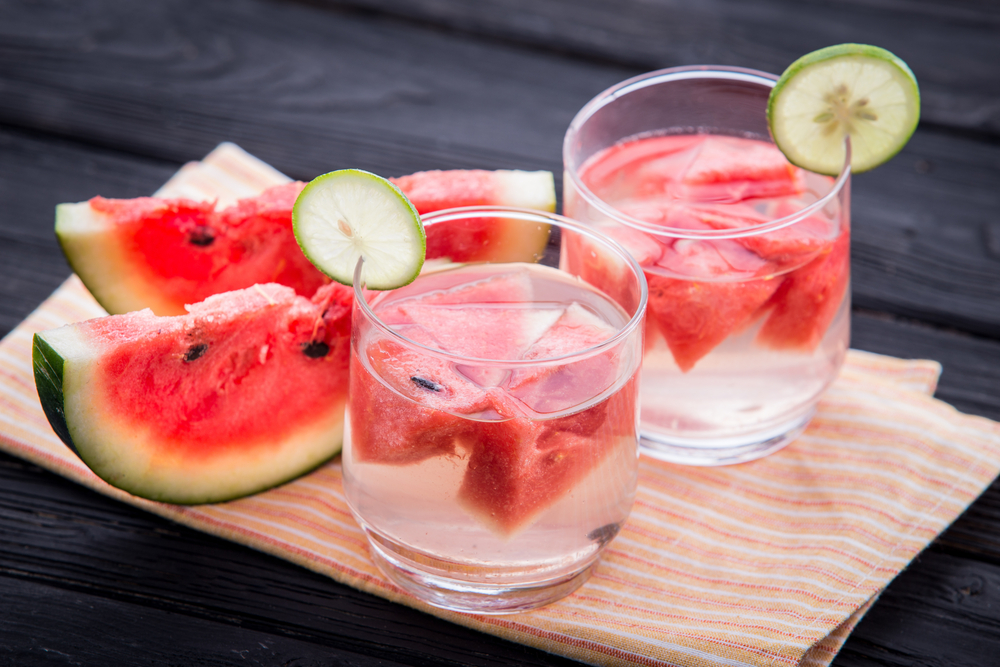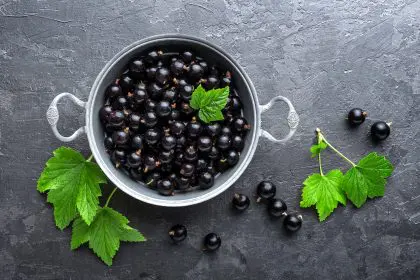Summer brings scorching temperatures and the need for foods that can help us stay cool, hydrated, and energized. Among all the seasonal produce available, watermelon stands out as nature’s perfect summer companion, offering far more than just refreshing sweetness on hot days.
This beloved fruit has been cultivated for thousands of years, originating in Africa and spreading across the globe as people discovered its remarkable ability to provide sustenance and hydration in challenging climates. Today, modern nutrition science has revealed the sophisticated array of compounds that make watermelon such an exceptional choice for summer wellness.
While many people think of watermelon as simply a sweet treat, its nutritional profile reveals a complex fruit packed with vitamins, minerals, antioxidants, and unique compounds that support various aspects of health. From post-workout recovery to brain function, watermelon offers benefits that extend far beyond its obvious cooling properties.
1. Provides exceptional natural hydration
Watermelon’s composition of over 90% water makes it one of nature’s most effective hydration tools. During summer months when fluid loss through perspiration increases dramatically, maintaining proper hydration becomes crucial for overall health and well-being.
The water content in watermelon is naturally balanced with electrolytes including potassium and magnesium, which help maintain proper fluid balance in the body. Unlike many commercial sports drinks that can be high in sodium or artificial additives, watermelon provides hydration with naturally occurring minerals.
This natural hydration source is particularly valuable for people who struggle to drink enough plain water throughout the day. The sweetness and flavor of watermelon can make fluid intake more appealing, helping individuals meet their hydration needs without relying solely on beverages.
The high water content also means that watermelon has a low caloric density, allowing people to consume satisfying portions while supporting their hydration goals. This combination of volume, flavor, and nutrients makes watermelon an ideal choice for maintaining fluid balance during active summer days.
2. Creates refreshing beverage alternatives
Traditional ice cubes can dilute beverages and add nothing but water to drinks. Watermelon cubes offer a creative alternative that adds both cooling properties and natural flavor enhancement to any beverage.
These frozen watermelon cubes can be prepared in advance and stored in the freezer, providing a convenient way to upgrade plain water, sparkling water, or other beverages. As they melt, they release natural sweetness and nutrients, creating a more enjoyable drinking experience.
The natural sugars in watermelon cubes provide a subtle sweetness that can help reduce cravings for artificially sweetened beverages. This substitution can support better hydration habits while reducing consumption of processed drink options.
Watermelon cubes can also be used in cocktails, mocktails, and other creative beverages, providing both visual appeal and functional benefits. The natural color and flavor make them an attractive and healthy addition to summer entertaining.
3. Accelerates muscle recovery after exercise
The amino acid L-citrulline found in watermelon plays a crucial role in supporting circulation and reducing muscle soreness after physical activity. This compound helps improve blood flow throughout the body, delivering oxygen and nutrients to working muscles more efficiently.
Watermelon’s combination of natural sugars, water, and electrolytes makes it an ideal post-workout snack for replenishing glycogen stores and replacing fluids lost through sweat. The easily digestible carbohydrates provide quick energy restoration without causing digestive discomfort.
The potassium content in watermelon helps prevent muscle cramps and supports proper muscle function during recovery. Magnesium, another mineral found in watermelon, plays a role in muscle relaxation and can help reduce tension after intense physical activity.
Unlike many commercial recovery drinks that contain artificial ingredients or excessive amounts of sugar, watermelon provides recovery support through naturally occurring compounds that work synergistically to promote healing and restoration.
4. Enhances brain function and mental clarity
The same L-citrulline that benefits muscle recovery also supports improved blood flow to the brain, potentially enhancing cognitive function and mental clarity. Better cerebral circulation can improve focus, memory, and overall mental performance.
Watermelon contains vitamin B6, which is essential for the production of neurotransmitters including serotonin and dopamine. These brain chemicals play crucial roles in mood regulation, motivation, and overall mental well-being.
The natural sugars in watermelon provide glucose that the brain uses as its primary fuel source. Unlike processed sugars that can cause energy crashes, watermelon’s natural sugars are accompanied by fiber and water that help provide more stable energy levels.
The hydration benefits of watermelon also support brain function, as even mild dehydration can impair cognitive performance, concentration, and mood. Maintaining proper hydration through foods like watermelon can help sustain mental clarity throughout the day.
5. Delivers powerful antioxidant protection
Watermelon is exceptionally rich in lycopene, a powerful antioxidant that gives the fruit its characteristic red color. Lycopene has been extensively studied for its heart-protective and anti-inflammatory properties, making watermelon a valuable addition to a health-conscious diet.
The concentration of lycopene in watermelon is actually higher than in many other red fruits and vegetables, including tomatoes. This high concentration means that regular watermelon consumption can significantly increase blood levels of this protective compound.
Lycopene and other antioxidants in watermelon help protect cells from oxidative stress caused by free radicals. This protection may help reduce the risk of chronic diseases and support healthy aging processes throughout the body.
The antioxidant profile of watermelon also includes vitamin C, beta-carotene, and other carotenoids that work together to provide comprehensive cellular protection. This synergistic effect makes watermelon more beneficial than isolated antioxidant supplements.
6. Supports restful sleep on hot nights
Summer heat can make getting quality sleep challenging, but watermelon can serve as a light, refreshing evening snack that won’t interfere with rest. Unlike heavy desserts or late-night meals that can disrupt sleep, watermelon provides satisfaction without digestive burden.
The natural sugars in watermelon can help promote the production of serotonin, a neurotransmitter that plays a role in sleep regulation. While watermelon isn’t a sleep aid, it can be part of a bedtime routine that supports relaxation and comfort.
The high water content helps maintain hydration throughout the night without causing excessive nighttime urination that can disrupt sleep. This balance is particularly important during hot weather when nighttime dehydration can occur.
Watermelon’s cooling properties can also help lower body temperature slightly, which may promote better sleep quality during warm summer nights when maintaining comfortable body temperature can be challenging.
7. Provides comprehensive nutritional support
Beyond its water content, watermelon offers an impressive array of essential nutrients that support overall health. The fruit provides significant amounts of vitamins A and C, which are crucial for immune function, skin health, and wound healing.
The potassium content in watermelon supports heart health and helps regulate blood pressure. This mineral is particularly important during summer when increased sweating can lead to electrolyte imbalances that affect cardiovascular function.
Watermelon also contains dietary fiber, which supports digestive health and helps maintain stable blood sugar levels. While the fiber content is moderate, it contributes to the fruit’s overall nutritional value and satiety.
The presence of beta-carotene and beta-cryptoxanthin adds to watermelon’s nutritional profile, providing precursors to vitamin A that support eye health and immune function. These compounds also contribute to the fruit’s antioxidant capacity.
8. Promotes oral health and fresh breath
Watermelon consumption can stimulate saliva production, which is essential for maintaining oral health. Saliva helps rinse away food particles, neutralize acids produced by bacteria, and provide natural antimicrobial protection for teeth and gums.
The fruit’s relatively low acidity compared to many other fruits makes it gentler on tooth enamel while still providing the benefits of increased saliva flow. This characteristic makes watermelon a tooth-friendly option for people concerned about dental health.
The natural sweetness of watermelon can help satisfy sweet cravings without resorting to processed sugars that feed harmful oral bacteria. This substitution can support better oral health while still providing enjoyable flavors.
The high water content in watermelon also helps maintain oral hydration, which is important for preventing dry mouth conditions that can contribute to bad breath and dental problems.
9. Enhances digestive health and regularity
The combination of high water content and dietary fiber in watermelon supports healthy digestion and can help prevent common summer digestive issues like bloating and constipation. Proper hydration is essential for maintaining healthy digestive function.
Watermelon’s natural sugars are easily digestible and don’t typically cause digestive discomfort, making it suitable for people with sensitive stomachs. The fruit’s gentle nature makes it an excellent choice for maintaining nutrition during times when other foods might be less appealing.
The cooling properties of watermelon can provide comfort during hot weather when digestive systems may be more sensitive to temperature and stress. This cooling effect can help reduce inflammation and support overall digestive comfort.
Regular consumption of watermelon as part of a balanced diet can contribute to maintaining healthy gut bacteria balance through its prebiotic fiber content, which feeds beneficial microorganisms in the digestive system.
Maximizing watermelon’s benefits
To get the most nutritional value from watermelon, choose fruits that are fully ripe, as ripeness affects both flavor and nutrient content. Look for watermelons with a deep, hollow sound when tapped and a creamy yellow spot where the fruit sat on the ground.
Store cut watermelon in the refrigerator and consume it within a few days for optimal freshness and safety. The cold temperature enhances the refreshing qualities while maintaining nutritional integrity.
Consider eating watermelon with a small amount of healthy fat, such as nuts or seeds, to enhance the absorption of fat-soluble vitamins and carotenoids. This combination can increase the bioavailability of beneficial compounds.
Experiment with different varieties of watermelon to discover preferences and potentially access different nutrient profiles. Seedless, mini, and yellow watermelons each offer unique characteristics while maintaining the core benefits of the fruit.
Incorporating watermelon into summer routines
Watermelon can be enjoyed in numerous ways beyond simple slices. Blending it into smoothies, adding it to salads, or creating chilled soups can provide variety while maintaining nutritional benefits.
For active individuals, watermelon can be consumed before, during, or after exercise to support hydration and recovery. Its natural sugars provide quick energy while its water content supports fluid balance.
Frozen watermelon pieces can serve as a healthy alternative to ice cream or other frozen treats, providing satisfaction without artificial ingredients or excessive added sugars.
The versatility of watermelon makes it easy to incorporate into various meals and snacks throughout the day, from breakfast fruit salads to evening refreshments.
Understanding individual considerations
While watermelon offers numerous benefits, individuals with certain health conditions should consider their specific needs. People with diabetes should monitor their blood sugar response and include watermelon as part of a balanced meal plan.
Those with kidney issues should be aware of watermelon’s potassium content and consult with healthcare providers about appropriate consumption levels. The high water content may also be a consideration for people with certain medical conditions.
Some individuals may experience digestive sensitivity to watermelon’s natural sugars, particularly when consumed in large quantities. Starting with smaller portions can help determine individual tolerance levels.
The natural diuretic effect of watermelon’s high water content may be beneficial for some but could be inconvenient in certain situations, making timing of consumption an important consideration.
Seasonal availability and sustainability
Watermelon’s peak season during summer months makes it an ideal choice for when its benefits are most needed. The fruit’s natural timing aligns perfectly with increased hydration needs and outdoor activity levels.
Choosing locally grown watermelons when possible can provide fresher fruit with potentially higher nutrient content while supporting local agriculture. The shorter time from harvest to consumption can preserve both flavor and nutritional value.
Understanding proper storage and handling of watermelon can help minimize waste and maximize the fruit’s benefits. Whole watermelons can be stored at room temperature until cut, then refrigerated for safety and quality.
The seeds and rind of watermelon are also edible and nutritious, providing additional ways to maximize the fruit’s benefits while reducing waste. Seeds can be roasted for a nutritious snack, while rinds can be pickled or added to smoothies.
















